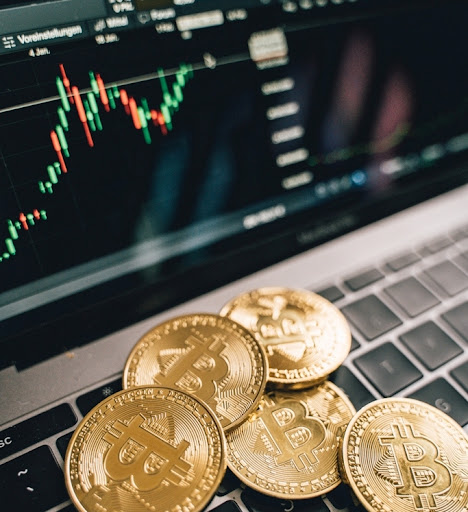
Bitcoins and other cryptocurrencies have generated major buzz in recent years as they have turned everyday people into millionaires, leading many bankers to classify them as the largest financial bubble of all time. Bitcoin isn’t the only one – there are plenty of other digital coins available for trading on non-traditional markets. To capitalize on this frenzy, specialized platforms have been created specifically for cryptocurrency trading. It’s safe to say that overall excitement is high when it comes to investing in cryptos. If you are planning to invest in Crypto, you can learn more by visiting https://immediateconnect-se.com/.
Cryptocurrencies are becoming increasingly popular and more widely accepted, but they also have a dark side when it comes to financial crimes. While the anonymity of cryptocurrencies makes them attractive for perpetrators wanting to hide illicitly gained funds, unpredictable fluctuations in their prices as well as evolving forms further complicate matters. In this article, we’ll explore how cryptocurrency is being used in nefarious activities and its potential impact on financial crime.
What are the risks associated with cryptocurrencies?
Crypto assets, commonly referred to as crypto-currencies, are attracting attention due to their decentralized nature and the anonymity of transactions. This can be beneficial for some users; however, it has also opened up a potentially vast new avenue for money laundering and terrorist financing activities – showcased in one recent case study demonstrating its wide impact. In addition to that particular issue, there is also heightened concern around financial security when dealing with digital services without involving traditional banks or other central institutions.
Crypto assets have seen rapid growth, yet they also come with significant volatility in their traded prices and can be difficult to incorporate into existing financial systems. Below we’ll check out a list of factors that may hinder bitcoin/cryptocurrency acceptance and identify the potential risks associated with them.
Lack of Market Regulation
Presently there are no genuine market regulations for crypto trading. Not even the United States, as well as Europe, remain suspicious of bitcoin’s stability as a currency. Therefore, no government-regulated banking institutions accept cryptocurrency transactions (for example encashing).
Cryptocurrencies can also be hard to trace because of not enough restrictions, and that is the reason they’re very well known for subterranean trading. Bitcoins may lead to economic turbulence in case all transactions happen outside the legal jurisdiction of financial institutions.
Inefficient Energy Usage
Bitcoin mining takes lots of electricity and can be responsible for more than 25% of all miner’s profits. If we don’t have access to alternative sources of energy, it’s not worthwhile.
Retail Inefficiency
Transactions in crypto are derived from blockchain technology, which happens to be a method according to mutual agreement. Blockchain requires many places to talk about, update as well as verify ledgers (contracts), and that makes the system extremely sluggish for retail transactions. In such a circumstance, cash and cards are going to be a lot swiffer.
No Cancellations or Refunds
After you’ve deposited the cryptocurrency into your bank account, you do not have any option to obtain your money back or even cancel. It is a simple transaction between two individuals, and in case something goes awry, neither party may sue. Sites such as Binance though could function as a link between the purchaser and seller, serving as an intermediary. You will need to make use of these platforms to ensure you receive a refund or cancellation, however, in case you don’t use them, you’re on your own.
Price Volatility
Price volatility is among the most crucial issues facing cryptocurrencies as a result of the reality that they’re very strongly linked to their intrinsic worth. Bitcoin’s ecosystem is comparable to burst bubbles, which may occur at any time. This may be obviated by linking cryptocurrency to some intangible or tangible thing.

